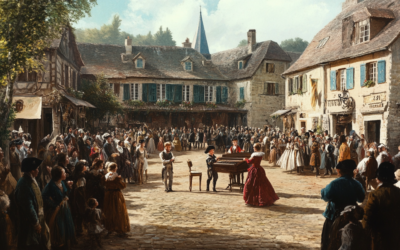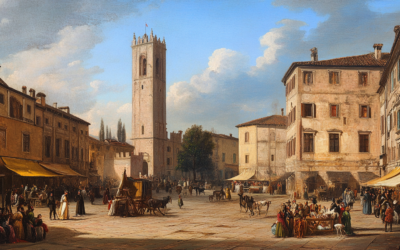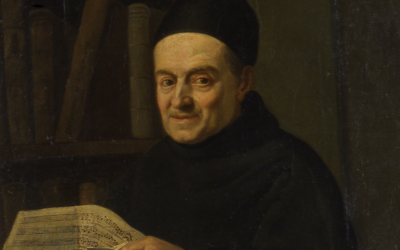Leopold Mozart
The Myth of Mozart: A Closer Look at the Man Behind the Legend
A critical examination of Wolfgang Amadeus Mozart’s life reveals a man shaped more by his father’s ambitions than by innate genius. Stripped of the myths, Mozart’s early years reflect a childhood dominated by relentless touring, inconsistent education, and a legacy built on exaggerated achievements. Discover the real story behind the legend.
“It wasn’t like that, because Leopold chose to rush his children’s development, making them perform immediately as circus attractions, dragged from place to place, even at the risk of their lives, just to astonish an audience that was generally incompetent and merely seeking entertainment”
Mozart in Italy
Wolfgang Amadeus Mozart is often celebrated as a musical prodigy and a genius whose talents were unparalleled. However, the reality of his life, as revealed through a more critical examination, suggests a different story. Born into a family where his father, Leopold, had grand ambitions, Mozart’s early years were shaped more by his father’s aspirations than by his own natural genius.
From the moment Wolfgang was born, Leopold saw in him an opportunity to fulfil his own dreams of fame and recognition. Leopold’s goal was not just to nurture his son’s musical talents but to create a spectacle that could be paraded across Europe, showcasing Wolfgang and his sister Nannerl as prodigies. The family’s relentless touring and performances were not so much about artistic growth as they were about satisfying Leopold’s desires for status and success.
Contrary to popular belief, Wolfgang’s early musical education was far from comprehensive. While he was encouraged to improvise and perform, his formal training was inconsistent, and much of what is attributed to his early compositions may have been heavily influenced or even entirely crafted by his father. The legendary “compositional notebooks” purportedly filled with young Wolfgang’s works were, in fact, mostly exercises and simple pieces, many of which were written or arranged by Leopold himself.
Leopold’s ambition extended to the fabrication of documents and stories that exaggerated Wolfgang’s early achievements. The so-called “composition book” gifted to Wolfgang for his seventh name day was later revealed to be a fraud, created long after the fact to embellish the narrative of Mozart’s childhood brilliance. These myths were further propagated by early biographers who relied heavily on Leopold’s embellished accounts, rather than on verifiable facts.
The truth is that Wolfgang was a talented child, but he was also a product of his father’s relentless ambition. Instead of allowing him to develop naturally, Leopold thrust Wolfgang into the limelight, often at the expense of his education and well-being. This aggressive pursuit of fame created a legend, but it also obscured the reality of who Mozart truly was.
You May Also Like
Leopold’s Invisible Hand
Behind the glittering performances of young Wolfgang and Nannerl Mozart lay the meticulous guidance of their father, Leopold. Often considered a mere teacher, Leopold’s role in composing and shaping their early musical successes has been largely overlooked. Was the child prodigy truly a genius, or was it Leopold who orchestrated his son’s rise to fame?
Debunking the Romantic Virtuoso Image
The image of Mozart as a Romantic-era virtuoso is a misleading anachronism, fuelled by 19th-century propaganda. Wolfgang was no transcendental pianist, but a product of an era where music was more galant than heroic.
The Visit to Verona
In Verona, young Wolfgang Mozart impressed the local nobility, but the reality behind the scenes reveals a carefully managed public image, where strategic networking and curated praise played key roles in shaping his growing reputation.
Mozart’s Training
The myth of Mozart’s genius is nothing more than a carefully crafted illusion, propped up by misplaced attributions and romanticised biographies. Behind his so-called brilliance lies the reality of his father’s dominating influence and a lack of formal education.
From London to Vienna
The Mozart family’s journey from London to Vienna was marked by illness, failed opportunities, and the relentless ambition of Leopold Mozart, revealing the pressures and challenges behind the facade of success.
The Ambiguous Legacy of Leopold Mozart
This post explores the multifaceted and often controversial life of Leopold Mozart, providing insight into the complexities and contradictions that defined his career and legacy.







